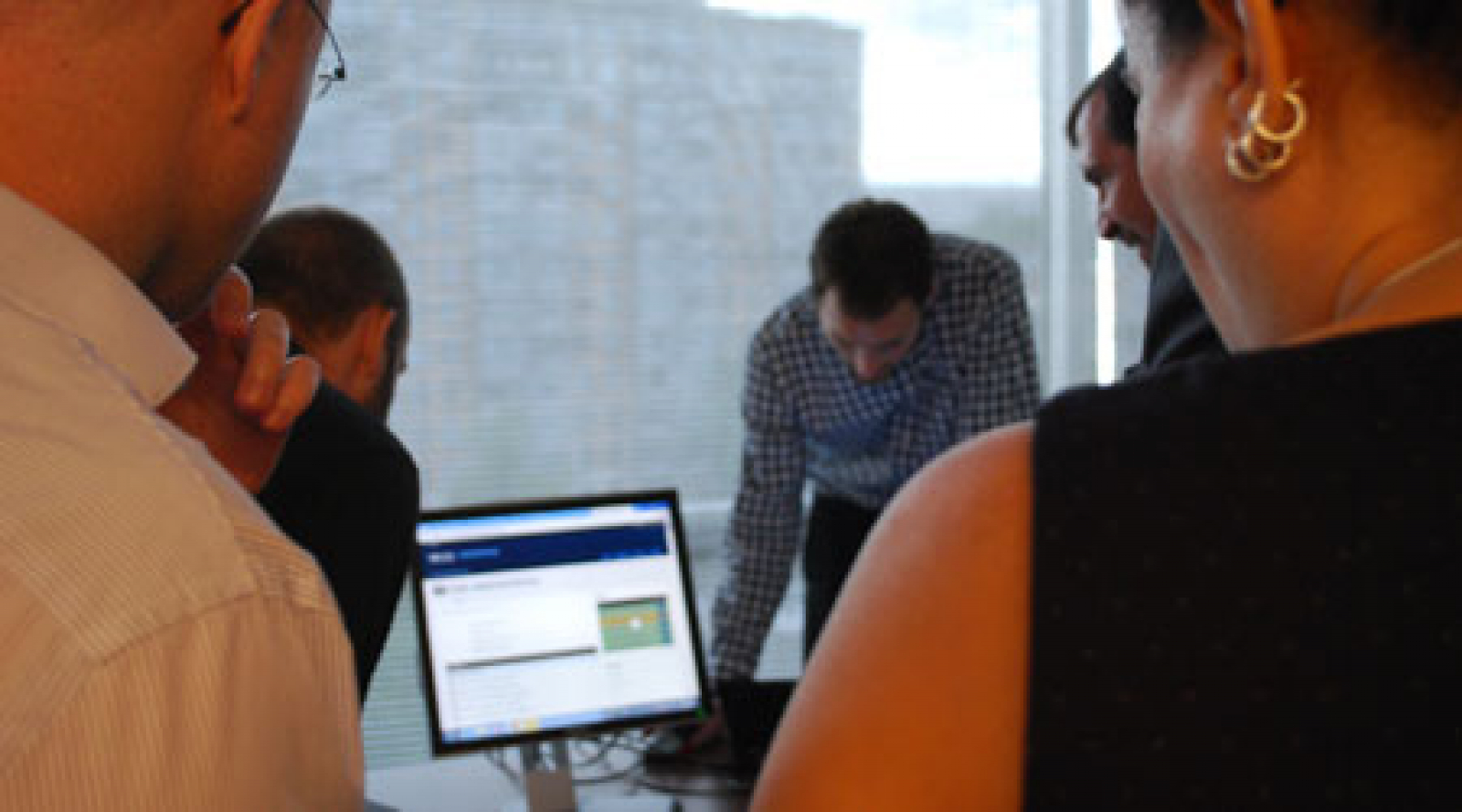NDI Launches New Tools for Civil Society and Democracy

SHARE
Tweet
Share
ISSUES
Tweet
Share
Last week, NDI launched a suite of open-source web applications, dubbed DemTools, that are designed to address common challenges that NDI’s partners face around the world: helping civil society groups organize, connecting government with constituents, managing election data and fostering civic debate.
“The citizens of the world are coming online in huge numbers, and we want to find ways to connect them to the building blocks of democracy,” said NDI’s Chris Doten announcing the tools and leading off a panel discussion with technology and democracy experts.
In recent years, powerful web-based platforms have revolutionized the way civil society and political institutions engage with citizens, but organizations in less affluent parts of the world have been locked out of taking advantage of these tools. Doten, who manages the technology for NDI, described this new form of digital divide as the “geek gap.”
Many powerful open-source tools are available for download free of charge, but few civil society organizations in developing countries have the technological capacity to deploy and maintain them. “It isn’t just the initial purchase price that’s the problem,” Doten explained, “it’s what you do with it in the years afterwards.”
To address the geek gap, NDI is offering DemTools to its partners through a cloud-services model, in which NDI will take over the hosting, deployment and maintenance of DemTools, freeing local organizations to focus on what they are good at: political organizing and working for democratic change.
Michael Murphy, director of NDI’s Belarus programs, emphasized that the tools are designed to address real needs of civil society groups on the ground. Touching on his experience with ePramova – a customized version of the Issues DemTool – Michael explained, “The tool came about because of the problem, not the other way around, and that’s important.”
The conversation then turned to a broader panel discussion on the use of technology for international development programs. Representatives from the U.S. Institute of Peace, U.S. Agency for International Development (USAID), U.S. State Department, and Amazon Web Services (AWS) explored the opportunities and challenges associated with using online platforms to support political development and democratic change.
Doug VanDyke of AWS hailed NDI’s use of a cloud-services model to enable the large-scale adoption of technology platforms that support programs run by NDI partners. “This is a big day for you all, I think this is just the beginning of something great...this is day one,” VanDyke said.
Merrick Schaefer, the mobile data lead for USAID’s new Global Development Lab, warned that “while a cloud-services model reduces the need [for technological capacity] there is still a certain level of expertise that is necessary at the local level.” NDI works closely with its partners in the field to ensure that they have the training they need to take advantage of these tools.
Macon Phillips, coordinator for the Bureau of International Information Programs at the U.S. Department of State, reminded the audience that Internet access and mobile phone penetration are still a challenge. While organizations like NDI should not stop trying to innovate and create new technology to support democracy, “we have to be clear eyed about the fact that we are only reaching a portion of that audience,” he said.
Rose Jackson, special adviser to the assistant secretary of state for democracy, human rights and labor at the U.S. Department of State, added that there’s a tendency to place too much emphasis on technology. “You can build really cool things, deploy it into a country and then it sits there,” Jackson said. Referring to ePramova, Jackson said that deploying tools in organizations to support existing substantive programs is a great model.
Click here to learn more about DemTools and how you can become involved in this open-source project.
Read more:
- TechPresident: NDI Launches Open Source DemTools for International Development»
- During ‘TweetTalk,’ Experts Discuss How Technology Can Strengthen Political Parties»
Published Aug. 18, 2014


